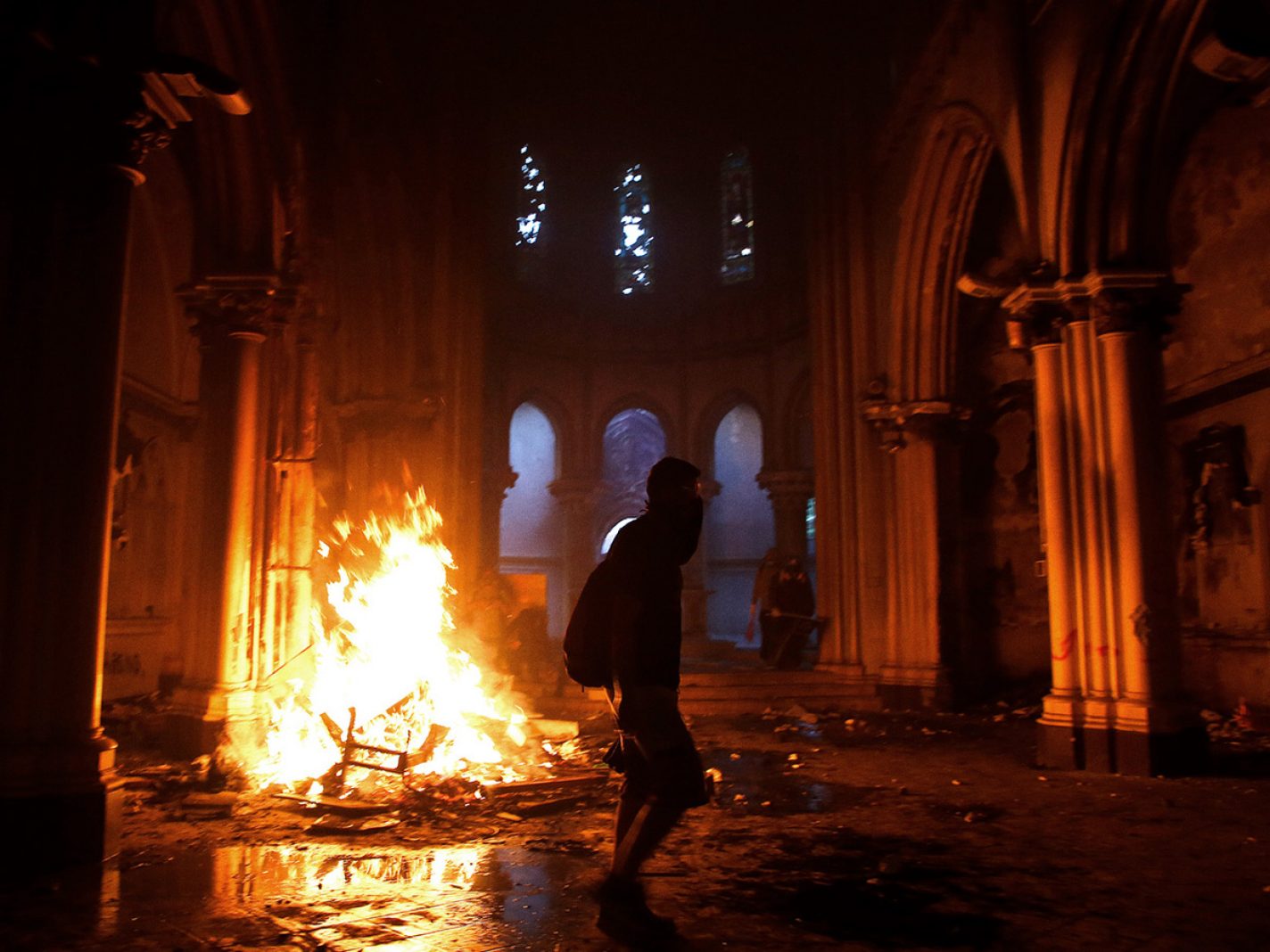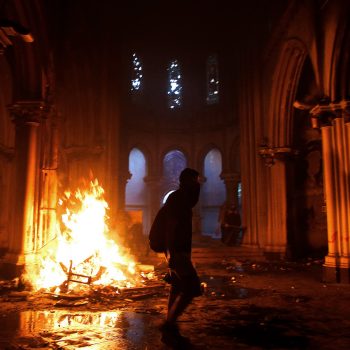Yesterday (Oct. 18), a crowd of Chileans gathered in Santiago to commemorate the anniversary of last year’s historic protests that reached about 25,000. Other cities across the country also held demonstrations to mark the Oct. 18, 2019 event, and not only yesterday, but in the day prior.
More than 30 people died and thousands were injured—most infamously, eye injuries as a result of rubber bullets shot by police, causing the loss of an eye or blindness for many—during protests that maintained potency through December.
Demonstrations began after students hopping turnstiles as a manifestation against a public transit fare increase. An even broader purpose—a better quality of life for all—ultimately led to more intense demonstrations that included rioting and looting.
Yesterday was like a sped-up version of last fall’s events; what began placidly turned fervent by the end of the day with buildings set ablaze, a police headquarters was firebombed and stores looted. The military was again deployed, and tear gas and water cannons were again employed.
The overarching goal for many protestors is to end neoliberal policies that have led to severe income inequality. Minimum wage workers earn what equates approximately to $426 a month in 45-hour weeks.
What Chileans started last fall never really ended, though. (Such is the case for many countries where uprisings have peaked in the past year or two.) When COVID-19 hit, though, President Piñera instituted a strict quarantine that somewhat quelled in-person organizing. But recently protestors have begun to reclaim the streets. Most wore masks.
A constitutional referendum is scheduled for Oct. 25; this was a concession offered by Chile’s government last year as an attempt to assuage protestors. Chileans can vote that day to essentially rewrite the country’s 1980 constitution, created during the dictatorship of Augusto Pinochet. Complaints about its neoliberalist leanings, its limits on voter choice and the constraints the document puts on social welfare programs have been a primary concern for many.
Presidential and congressional elections in Chile are scheduled for 2021.




